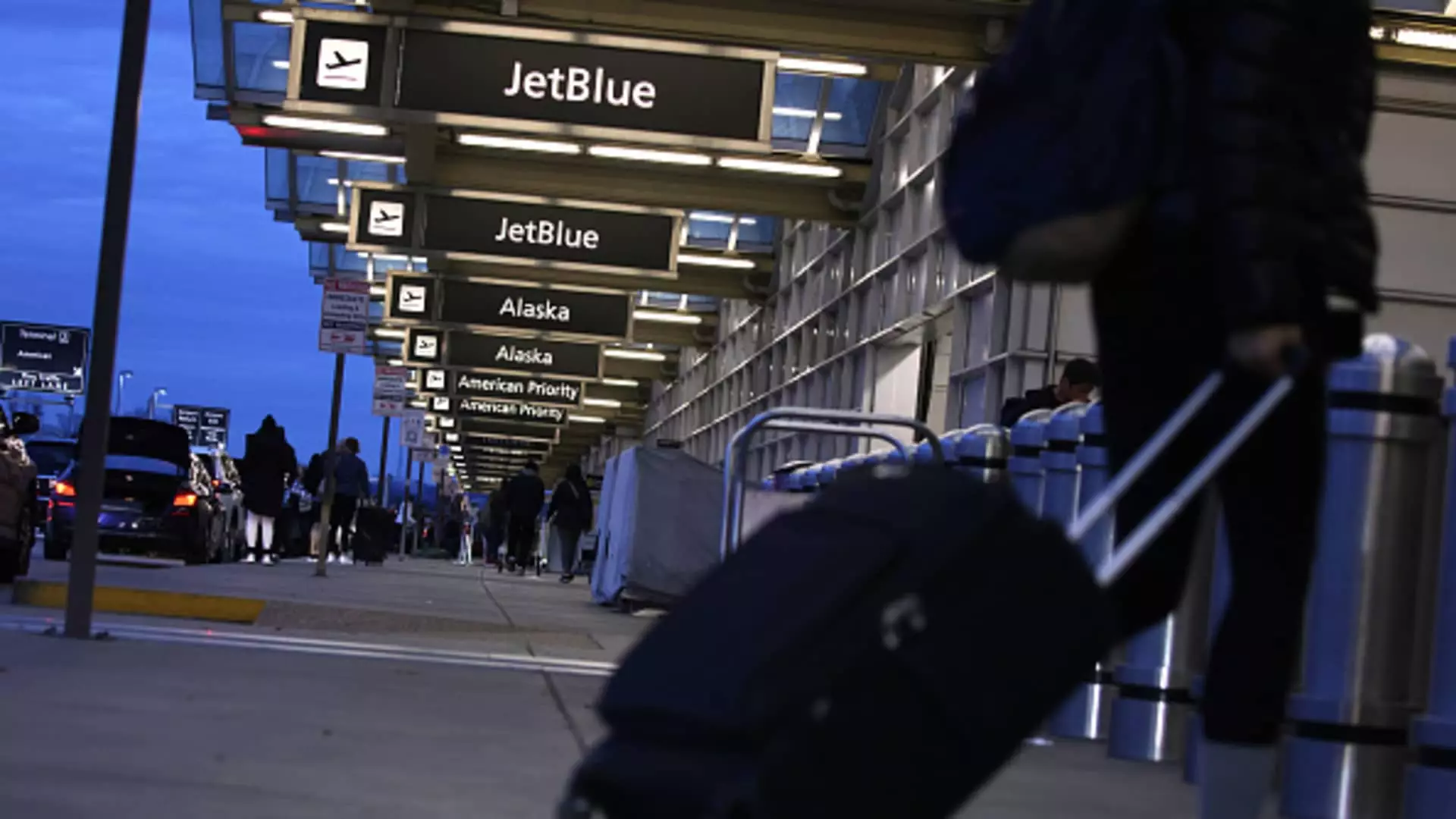JetBlue Airways is currently navigating a financially turbulent environment, marked by a series of cost-cutting measures and revenue-boosting initiatives. With a commitment to adapting to the changing aviation landscape, the airline is now offering early retirement packages to a select group of its pilots. This decision, conveyed through the Air Line Pilots Association (ALPA), highlights both the financial pressures on the airline and the challenges presented by operational hiccups, such as a significant engine recall affecting a portion of their fleet.
The early retirement initiative is set to accept voluntary separation bids until February 7, reflecting an urgency to streamline operations as JetBlue adjusts to market demands and internal challenges. According to information shared with the pilots, the compensation structure for those who opt for early retirement includes a payout equivalent to 55 hours of their hourly wage leading up to their retirement date or for a period of 18 months post-agreement, whichever is shorter. This financial incentive serves as a strategic move to reduce personnel costs while providing pilots with a viable exit option.
For instance, the agreement stipulates that a seasoned Airbus A320 captain with 12 years of experience nearing the federally mandated retirement age of 65 would receive just over $416,000 if they elect to retire early. Conversely, a less experienced Embraer E190 captain stands to gain approximately $160,000. These financial figures underscore the airline’s intention to facilitate a smoother transition for its pilots while also managing its workforce strategically.
As JetBlue prepares to announce its quarterly earnings soon, industry stakeholders are keenly watching how this early retirement offer may impact the airline’s operational effectiveness and financial stability. The combination of an aging pilot workforce, coupled with restrictions imposed by the Federal Aviation Administration regarding retirement ages, creates a dichotomy that JetBlue must address thoughtfully. Moreover, pilots eligible for early retirement must be 59 years old or older by March 31, further defining the potential pool of participants.
In offering early retirement, JetBlue hopes to not only reduce costs but also manage pilot resources more effectively amidst external pressures such as the Pratt & Whitney engine recall, which has led to grounding aircraft and operational delays. The strategic decision to encourage voluntary retirements may ultimately yield a leaner, more efficient workforce and allow the airline to adapt to evolving travel patterns.
Challenges Ahead
As the airline industry continues to rebound from the impacts of the pandemic, JetBlue’s efforts to innovate, including the introduction of first-class seating, reflect its ambition to capture more market share. However, balancing financial viability with employee satisfaction remains a critical challenge. As this story unfolds, JetBlue’s approach will serve as a case study for airlines looking to navigate similar waters amidst a changing industry landscape. The early retirement offers could pave the way for a more agile workforce, but only time will tell if this initiative effectively aligns with JetBlue’s long-term strategic objectives.

